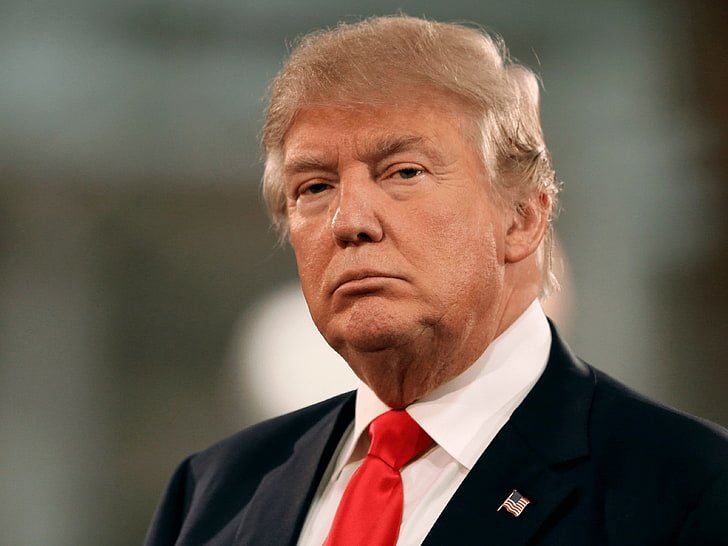Table of Contents
ToggleSaudi Arabia Assists Iranian Hajj Pilgrims Stranded Due to Airspace Closure
In a major display of compassion and commitment to unity within the Muslim Ummah, Saudi Arabia has stepped forward to assist Iranian Hajj pilgrims who found themselves stranded in the Kingdom after the sudden closure of Iranian airspace. The initiative, ordered by King Salman bin Abdulaziz and implemented under the direct guidance of Crown Prince Mohammed bin Salman, aims to ensure that all Iranian pilgrims receive the necessary support, comfort, and protection while they remain in Saudi Arabia.
This humanitarian move, despite the historically complex political relationship between Saudi Arabia and Iran, underscores the Kingdom’s unwavering focus on the sanctity of Hajj and its dedication to treating all pilgrims with equality and respect, regardless of nationality or background.
Background: The Iranian Airspace Closure
The current situation arose after Iranian authorities temporarily shut down the country’s airspace for civilian flights. The sudden move was linked to heightened security concerns in the region following recent escalations and a tragic Israeli airstrike near Tehran. This disruption affected numerous flights, including those scheduled to return Hajj pilgrims home after completing the holy journey in Saudi Arabia.
Many Iranian pilgrims had completed their religious rites and were preparing for their return journey when the airspace closure left them grounded. With growing anxiety and uncertainty among the pilgrims and their families, swift action was needed — and Saudi Arabia responded without hesitation.
King Salman’s Directive: Compassion Before Politics
King Salman’s instructions to Saudi officials were clear: help the stranded pilgrims and make sure they are well taken care of. This instruction came after Crown Prince Mohammed bin Salman presented a detailed plan to ensure smooth management of the unexpected situation. The Ministry of Hajj and Umrah was assigned the primary responsibility to implement this plan effectively and efficiently.
According to official Saudi sources, the plan includes:
-
Providing accommodation and meals for the affected Iranian pilgrims
-
Ensuring proper healthcare access and medical support wherever needed
-
Maintaining open communication channels with Iranian Hajj mission officials
-
Facilitating eventual return arrangements once Iranian airspace reopens
This move has been praised globally, especially by Muslim scholars and humanitarian organizations, who see it as an example of placing humanitarian and religious values above political differences.
Iranian Pilgrims Grateful for Saudi Hospitality
Iranian pilgrims, many of whom were deeply concerned about their journey back home, have expressed immense gratitude for the hospitality and support extended by the Saudi authorities. Videos and images circulating on social media show Saudi volunteers and Hajj officials offering assistance, serving meals, and providing updates to elderly pilgrims and families.
One Iranian pilgrim was quoted saying, “Despite everything going on between our governments, the Saudi people have treated us like guests, like brothers in faith. We are thankful for their care during this uncertain time.”
The sense of brotherhood and unity among Muslims, particularly during Hajj, continues to overcome political barriers — a reality reflected in Saudi Arabia’s treatment of all pilgrims equally and respectfully.
Hajj 2025: A Year of Record-Breaking Participation
This year, the 2025 Hajj season welcomed over 1.6 million pilgrims from around the world. Tens of thousands of those pilgrims were from Iran. Despite the logistical and diplomatic challenges that often accompany such a massive religious event, Saudi Arabia once again showcased its exceptional organizational capacity by successfully hosting pilgrims from over 180 countries.
Saudi officials ensured the safety, hygiene, and overall wellbeing of all pilgrims through:
-
Upgraded transportation systems
-
Improved healthcare facilities
-
Smart tracking technologies to assist in crowd control and monitoring
-
Volunteer programs to assist elderly and disabled pilgrims
This year also saw the continuation of initiatives like the “Road to Makkah” program that aims to simplify immigration procedures for selected countries before pilgrims even arrive in Saudi Arabia.
Bridging Political Gaps Through Religion
The tension between Saudi Arabia and Iran has been longstanding, with disagreements on various regional and religious matters. However, in recent years, there have been notable efforts on both sides to ease tensions and foster better diplomatic understanding. The recent diplomatic thaw, brokered with the help of China in 2023, saw embassies reopen in both capitals and official visits resume.
Saudi Arabia’s response to the current situation involving Iranian pilgrims is seen by many as an extension of this newfound willingness to separate humanitarian and religious responsibilities from political rivalries.
Religious analysts and observers note that Saudi Arabia’s commitment to hosting Hajj in a peaceful and inclusive manner is not only rooted in duty but also in a genuine desire to strengthen Muslim unity. As the Custodian of the Two Holy Mosques, the Saudi leadership views it as their divine responsibility to ensure that all pilgrims, regardless of their background, experience the spiritual journey in safety and comfort.
International Reactions and Applause
Several international Islamic organizations and governments have lauded Saudi Arabia’s response. The Organization of Islamic Cooperation (OIC) issued a statement commending the Kingdom’s efforts in upholding the values of Hajj and ensuring the dignity of pilgrims.
Pakistan’s Foreign Office also praised the move, calling it “a true example of Islamic solidarity” and urging other nations to take inspiration from such acts of kindness.
Even some Iranian media outlets, which often remain critical of Saudi policies, acknowledged the assistance provided and encouraged cooperation on humanitarian and religious matters moving forward.
Sindh to Face Pre-Monsoon System from Today
Read This Articals
Voices from the Ground: Testimonials from Pilgrims
Many firsthand accounts from Iranian pilgrims paint a vivid picture of care and coordination. For example:
Fatemeh Mohseni, a 61-year-old pilgrim from Mashhad, shared: “When we heard the news about our flight being canceled, we were scared. But then the Saudi volunteers came, gave us food, water, and even helped contact our embassy officials. It felt like we were in safe hands.”
Ali Rezaei, another pilgrim from Shiraz, added: “It’s moments like this that remind us that religion unites us. Politics can divide, but Hajj brings us together.”
The Bigger Message: Unity in the Face of Crisis
This episode serves as a powerful reminder of the importance of unity among the global Muslim community. At a time when geopolitical conflicts continue to create division, the values of Hajj — peace, equality, humility, and unity — have shone through brightly.
Saudi Arabia’s handling of the situation also aligns with its long-standing message to the world that it sees itself as a global hub for Muslim unity, and a responsible host for one of the most sacred religious journeys in Islam.
By prioritizing the wellbeing of Iranian pilgrims, even amid strained diplomatic relations and regional tensions, the Kingdom has once again demonstrated that religious duty transcends politics.
Next Steps: Monitoring the Situation
Saudi authorities are actively monitoring the status of Iranian airspace and remain in touch with Iranian officials to facilitate the earliest and safest possible return for the pilgrims. Meanwhile, extra efforts are being made to make the remaining stay of Iranian pilgrims in the Kingdom as smooth and stress-free as possible.
Health professionals are on standby, extra accommodation has been arranged, and a 24/7 helpline has been activated for concerned family members abroad to receive updates.
Conclusion: A Humanitarian Example for the Muslim World
Saudi Arabia’s decision to support Iranian Hajj pilgrims during a time of logistical and political uncertainty stands as a powerful act of Islamic brotherhood and humanitarian responsibility. It highlights the potential for religious duty to bridge divides and create lasting bonds of unity in the Muslim world.
As pilgrims continue to share their stories of peace and solidarity, the Kingdom’s commitment to the sacred mission of Hajj is more evident than ever. The incident has proven that while political borders may divide, the values of Islam and the sanctity of Hajj have the power to unite




